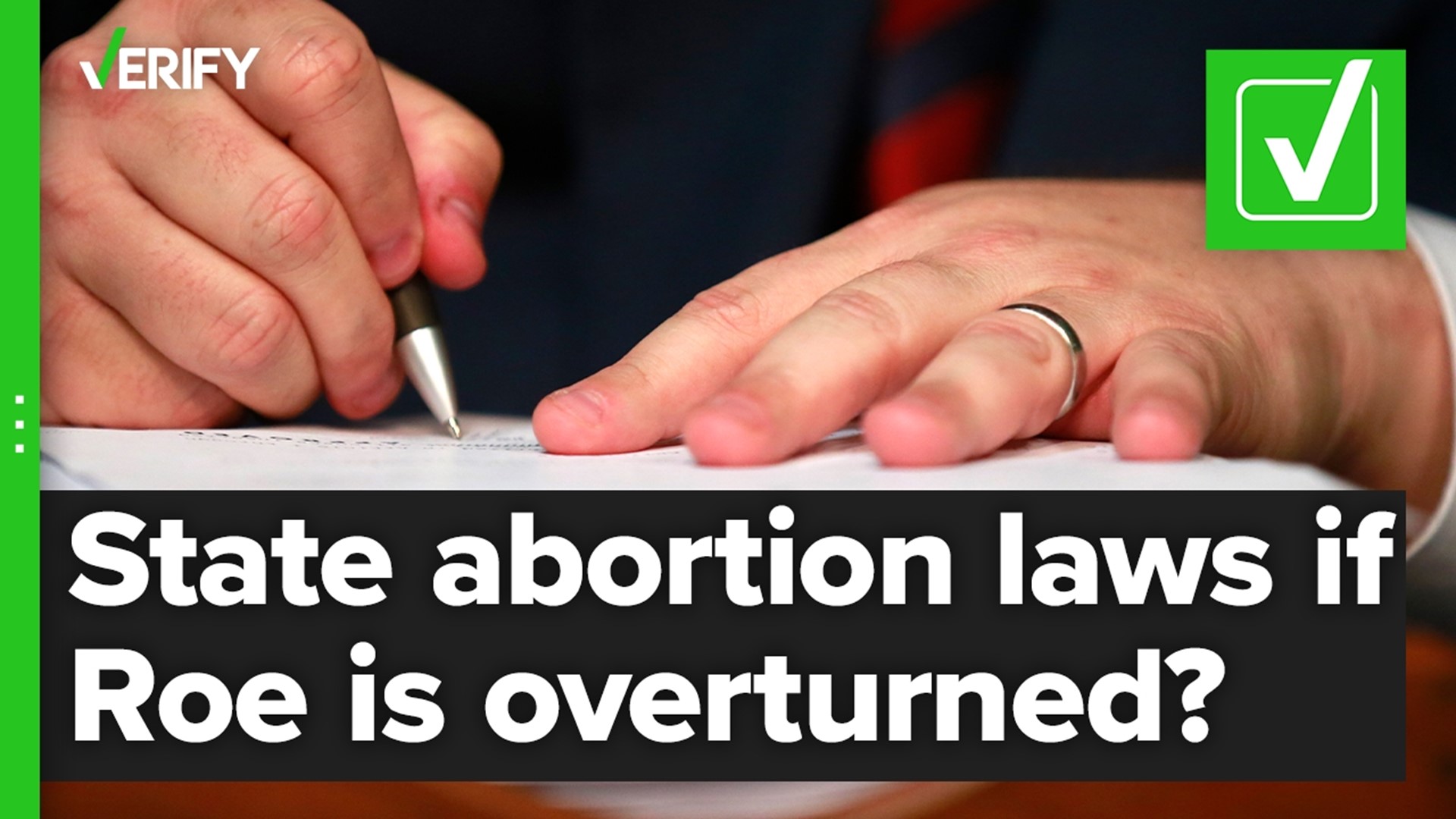ST. PETERSBURG, Fla. — The Supreme Court has overturned Planned Parenthood v. Casey and Roe v. Wade.
The conservative-majority court ruled June 24 on Mississippi’s abortion law that bans nearly all abortions after 15 weeks — before what the National Library of Medicine recognizes as fetal viability in America.
Several states already have "trigger" laws on the books that would essentially automatically restrict abortions if the nation's highest court overturns the landmark abortion rights cases.
Florida has already taken steps to limit abortions. In April, Gov. Ron DeSantis signed a bill restricting most abortions after 15 weeks unless the pregnant person's life is endangered. It does not have exceptions for rape, incest or human trafficking. That law takes effect July 1.
Other abortion restrictions already exist in Florida. Most abortions are already banned after 24 weeks of gestation.
Following a seven-year legal battle, a Florida judge recently approved a 24-hour waiting period for abortions that are within the parameters outlined in state law.
Additionally:
- In Florida, minors must receive parental consent before they can undergo abortion procedures. And anyone seeking an abortion is expected to receive counseling beforehand.
- Ultrasounds must be done before abortions in Florida, and pregnant women must be given the chance to view the images.
- Health plans made available through the Affordable Care Act can only be used for abortions if the mother's life is in danger or in situations of rape or incest. The same is true for any public funding.
Some fear the Supreme Court decision could lead Florida's conservative legislature to begin adding more restrictions in the coming years.
Florida has the third-highest abortion rate in the United States, according to the CDC’s 2019 data, the most recent figures available.
According to the Agency for Health Care Administration, in 2021, 79,817 abortions were performed in Florida. Of those, 59,257 happened within the 1st trimester and wouldn't be impacted by the 15-week law.
The Guttmacher Institute, which describes itself as committed to advancing "sexual and reproductive health and rights," reports that Florida is one of 26 states likely to ban abortion without Roe. Florida’s political composition and its most recent abortion limit law — one of the most restrictive in the nation — are factors that could point to more restrictions ahead.
This would not only affect people in Florida seeking an abortion but also people from surrounding southern states with more limited abortion access who will likely flock to Florida for the procedure with Roe v. Wade overturned.
Some Florida lawmakers have pushed for a "heartbeat" abortion law similar to the one in Texas.
Florida's 15-week ban means 15 weeks after a woman's last menstrual cycle, not from conception, Tampa attorney Leslie Sammis explained. A trimester is 12 weeks after fertilization. It's possible that women could find out they are pregnant outside of that window.
Abortion rights advocates say that small window, as well as the large number of abortions reported to happen in Florida, suggest a number of women are likely to seek out unsafe, illegal abortions if access were further restricted in the state.
Women or providers who receive or perform illegal abortions could ultimately be prosecuted.
A study by the National Association of Criminal Defense Lawyers highlights the increased number of prosecutions that could follow a reversal of Roe v. Wade. States like Oklahoma have tried to pass legislation that looks to redefine "personhood" to include "an unborn child." This creates a wider ground for criminal liability offenses.
Because these "personhood" laws grant unborn fetuses full legal rights, this could create severe charges for those who terminate pregnancies and violate abortion bans.
Some state attorneys have voiced their support for Roe, including Andrew Warren, state attorney of Florida's 13th Judicial Circuit.
"Abortion needs to be safe, legal and rare," a tweet from Warren's account read.
"If Constitution doesn’t protect freedom to make choices re our bodies, then it doesn’t protect us from laws mandating abortion for genetic disorders, sterilization (eg China’s 1-child policy), genital mutilation, etc.," another read.
Adoption in Florida could also be impacted.
Restricting access to abortion is likely to cause adoption rates to increase, adoption attorney Jeanne Tate said.
“I think as pregnant mothers contemplate their options, one would expect adoption would be chosen with greater frequency if abortion is illegal in their state of residence, and if travel to another state, where abortion may not be illegal is economically or logistically difficult,” Tate said.
Adoption agencies are preparing for this possibility, she said. A large part of this is increasing adoption education for pregnant people.
“There are a lot of misconceptions about adoption,” Tate said. “Folks don’t know the many many options that there are.”
Many adoption agencies have been working over the last few months to raise money to boost their visibility and to fortify their services in anticipation of Roe v. Wade, she said. They’re anticipating an increased demand for their services.
Tate doesn’t see the increased demand being a concern.
“There has long been a high number of adoptive parents who are waiting,” she said.
However, adoption isn’t a substitute for abortion, Tate said. It’s just another option that a pregnant mother can explore as they face a crisis or unwanted pregnancy.

